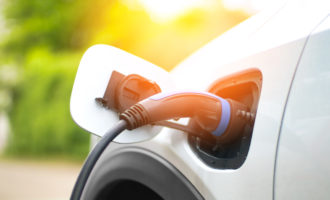The number of electric vehicles (EVs) on Britain’s roads is increasing. With the sale of new internal combustion engine vehicles due to be outlawed in the UK in 2035, that rate of change will need to increase significantly before then. But what are the issues in reaching zero emission motoring by 2035? James Tucker, Business Advisory Partner looks at some of the current obstacles.
Legislation
There are a range of carrot and stick policy measures in existence to encourage the transition towards EVs.
The UK government has also thrown itself 100% behind electric battery-powered vehicles, whilst the EU has rather more pragmatically backed more than one horse, leaving space for hydrogen and e-fuels (made of captured CO2 and hydrogen extracted from water using renewable energy).
Time will tell whether this disparity represents inspired leadership in tackling climate change, as the government would no doubt portray. An alternative view may be that it is an example of post-Brexit bureaucracy that risks putting the UK at a competitive advantage.
Hearts and minds
We all know that banning anything in isolation is rarely the answer, and in reality, people need to be convinced that they want to buy an electric vehicle, not that they have got to because they have no alternative.
One of the biggest obstacles to that change of mindset (given that most of us want to make environmentally responsible decisions) is the now well-worn term of ‘range anxiety’. Anxiety about anything is often misplaced and not supported by facts and science so let’s look at some of real issues.
Ken McMeikan, CEO of Moto service station operators put his view forward on national radio recently when he said that the power and/ or infrastructure simply does not exist to run the national fleet of EVs. Without significant strategic change, he said, it won’t happen any time soon.
Moto predict that they will require 25% of the power output of a nuclear power station to service rapid charging points at their service stations by 2030. In June 2023 alone they used 3M kilowatts of power for that purpose, enough to power 12-14,000 homes.
But where will all this power come from and how will it get to where it is needed? Moto’s concerns appear to be backed up by Nick Winser, the government’s first Electricity Networks Commissioner who has put forward a raft of measures aimed at clearing the grid backlog.
Currently new renewable energy projects face a wait of 10-15 years to connect to the UK power network because the grid simply cannot keep pace. The recommendations are designed to halve this to no more than 7 years – a key date as described above. The UK grid connection delay is the longest in Europe and a major obstacle to achieving our net zero targets.
The cost
The cost of driving from A to B is clearly a massive factor in people’s decision-making process. With the huge increase in the cost of electricity over the last couple of years, the distinction between filling up with traditional fuel and recharging an electric vehicle is not as stark as it once was, but it is relatively easy to work out the numbers. But what about the hidden costs? For many years now, domestic electricity has carried VAT at 5% whilst commercial supplies are charged at 20%. Even without profit margins, that makes it much more expensive to recharge your EV from public charging point than from at home. For businesses with fleets of larger vehicles which can’t be charged from domestic power points, this becomes a significant cost concern.
Then there is depreciation. According to Autovista, the average retained value for a used electric car after 3 years and 36,000 miles is 47.6% of its cost. That compares very unfavourably to petrol engine cars at 67.1% and even the out-of-favour diesels not far behind. For a car costing £40,000 new that is an additional cost of £7,800 or 20% over a 3 year period.
Is electric really the only way forward?
BMW doesn’t think so – they have just launched the iX5 Hydrogen which they say acts as an ‘additional option’ for locally emission-free mobility in the future. BMW have worked with Toyota, a notable absentee from the fully electric market until recently, to source the hydrogen cells.
Perhaps this represents an alternative for the future, although if the electricity infrastructure in this country is a problem, you will need a fair amount of good fortune finding a hydrogen cell filling station– there are currently 15.
Hydrogen however is widely seen as a vital component to the commercial vehicle market’s future transition to net zero although hydrogen cell-powered HGVs and heavy plant is really not feasible at the moment.
Perhaps it is no surprise then that the UK government signed an £11.3M deal with Toyota late in 2022 to assist with the development of hydrogen-powered pickup trucks with a range of big players investing huge sums in the development of this technology. Hydrogen-powered trucks also have a greater fuel-efficiency and range than battery-electric vehicles, making them beneficial for long[1]haul transportation. Unsurprisingly, the cost of hydrogen trucks is still prohibitively high for most transport and haulage firms, but as economies of scale and technologies for solid[1]state fuel cells and storage systems advance, the costs are expected to decrease.
Scrutton Bland have a comprehensive range of business advisory services for transport and logistics firms. Whether you need advice on VAT regulations, moving your accounting processes to digital, or improving your financial management, we can help. Get in touch with James or one of the Business Advisory team at hello@scruttonbland.co.uk or phone 0330 058 6559.







